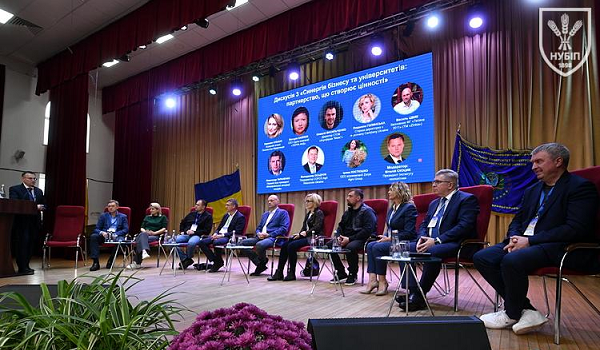According to updated estimates by experts from the World Bank, the Government of Ukraine, the European Union, and the United Nations, as of the end of 2024, the direct damage caused by the war reached 176 billion USD, while the reconstruction needs exceeded 520 billion USD. Unfortunately, throughout 2025, these figures continue to grow, with a significant share of the losses concentrated in agriculture, ecology, infrastructure, education, and science — precisely the sectors in which NUBiP of Ukraine is most active.
The university’s scientists are part of the Humanitarian Demining Group under the Ministry of Economy, Environment, and Agriculture of Ukraine. Interdisciplinary research teams — including the Ukrainian Laboratory of Quality and Safety of Agricultural Products, the Agrobiological Faculty, the Institute of Agricultural Radiology, and the Faculty of Land Management — are implementing projects focused on identifying military and technogenic contamination of soil and water.
With the financial support of the Ministry of Education and Science of Ukraine, a number of technological and innovation projects are being carried out. These projects aim to apply artificial intelligence technologies for soil restoration, develop bioremediation methods, design mechanisms and equipment for leveling damaged soil, formulate a risk-oriented concept for increasing forest resilience to fires and climate change, create food technology complexes and nutritional planning systems for military personnel, restore agricultural lands withdrawn from use after the Chornobyl disaster, and promote circular and blue economy models in agriculture and fisheries.
Joint projects with business also deserve attention — such as “Intelligent Greenhouse Management Systems Using Mobile Robots”, and the digital platform “E-Dorada”, which provides remote learning opportunities for clients and advisory services. Other areas of innovation include new approaches to breeding, nutrition science, and human and animal health.
NUBiP has introduced a new format of university education — education through innovation and partnership with business, emphasizing practice-oriented learning and student-centeredness. This approach involves cooperation with stakeholders in the implementation of 158 educational programs at the bachelor’s, master’s, and PhD levels, as well as the realization of a strategy for building a safe, energy-independent, and digital educational environment.
Rector Vadym Tkachuk emphasized that the university’s greatest asset is its reliable partnerships. The mutually beneficial relationships with the business community are reflected in the so-called “success funnel.” Universities aim to ensure that students acquire practical skills, gain access to modern infrastructure, mentorship programs, and first employment opportunities. Businesses, in turn, benefit from a steady flow of highly trained specialists, often among the best in their fields.
Examples of successful collaboration with businesses include scholarship and competition programs from companies such as KUHN and MZURI. A flagship of the university’s educational initiatives is the “Agrokebety” Master’s Program, created in partnership with the Ukrainian Agribusiness Club, where top managers of agricultural companies collaborate with academic advisors to mentor master’s students. One of the program’s guiding principles — “from the production line to the classroom” — means that students train in laboratories equipped with the same technology currently used in industry.
In 2024–2025 alone, over 30 new educational and research laboratories were opened at NUBiP in cooperation with, or with financial support from, leading companies and institutions such as KUHN, MZURI, Qweedo Robotics, LightGene, HORSCH, JICA, and the Continental Farmers Group Charitable Foundation. Each year, dozens of top employers — including KERNEL, MHP, Bayer, KUHN, Syngenta, Carlsberg, and others — visit the university to offer internships, dual education programs, employment opportunities, and joint educational initiatives.
NUBiP is cultivating a career development culture starting from the first year — from developing soft skills to obtaining professional certifications, from business interviews to startup creation. At the heart of this process lies partnership: student – university – business.
“NUBiP strives to be a national platform for discussing and addressing the country’s development challenges — as today’s event demonstrates,” noted Vadym Tkachuk. “We unite science, education, business, and the public sector in a shared dialogue about the future.”
Each year, the university hosts over 200 conferences, forums, seminars, and round tables dedicated to food security, sustainable development, digitalization, energy, veterinary medicine, psychology, humanities, and agricultural innovations. NUBiP acts as a bridge between science, education, and business, ensuring the integration of knowledge into the real economy. Thanks to this, the university is becoming a center of communication, innovation, and solutions that support the country’s recovery and help formulate academic recommendations and policy proposals to improve regulatory frameworks and address urgent development tasks.
At the conclusion, Rector Vadym Tkachuk proposed a “Education – Science – Business” Partnership Roadmap, which envisions various formats of interaction with the business community, and invited all stakeholders to join in its implementation.
